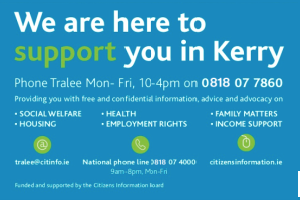WE are often approached by family run businesses with queries on retirement and in particular to Retirement Relief available.
Tax planning for retirement needs to take place well in advance of the final decision to retire.
Provided certain conditions are met, it is possible to dispose of your business assets and pay zero Capital Gains Tax using CGT retirement relief.
Capital Gains Tax (CGT) is a tax on gains arising from the disposal (by sale, gift or otherwise) of certain assets.
So what conditions apply to this relief?
• The disposal must be made by an individual (and not for example by a company).
• The individual must be 55 or over.
• The disposal must be of qualifying assets (e.g. business assets or family company.
• The qualifying assets must have been held for a minimum period immediately prior to the disposal – normally 10 years.
• When the disposal is of family company shares the individual must have been a working director for a minimum of 10 years up to the date of disposal, 5 years of which were on a full time basis.
• Although the relief is called Retirement Relief, an individual can still remain actively involved in the business and remain a shareholder and/or director of the company following the disposal of the business assets.
• If an individual disposes of an asset owned by him but actually used by the family company, the disposal of the asset can also qualify for CGT retirement relief, provided it has been owned by the individual for the minimum period and is sold along with his shares, at the same time and to the same person. This might arise where a shareholder or director rented a business premises to his company, and he is now selling his shares along with the building to a third party.
Disposals to a Child
Provided the qualifying conditions are met, where a business owner disposes of qualifying assets to his/her child (see Revenue website for definition of a ‘child’), full CGT retirement relief is available regardless of the consideration given or the market value of the shares.
Disposals to other parties
• Full Relief – Where the proceeds of the sale of the business assets do not exceed €750,000, full relief is available bring the CGT liability to NIL – providing all conditions have been met.
• Marginal Relief – Where the proceeds exceed €750,000 an individual may still be entitled to claim partial or marginal relief. Marginal relief reduces the CGT payable on the disposal to an amount equal to half of the excess over €750,000.
Under the new provision, which apply to all transfers made from 1st January 2014 onwards, this relief will be restricted in certain cases.
Where the individual making the disposal is aged 66 or more, there is a new cap introduced for disposals to children, which will restrict the exemption to qualifying assets with a market value of up to €3 million, with no relief for amounts in excess of that.
In the case of disposals to third parties the relevant threshold will be reduced to €500,000.
CGT relief is one of the more generous tax reliefs out there. Business owners or those holding family company shares should seek professional advice as soon as possible to discuss potential planning opportunities.
• Chris Murray is Practice Manager at Casey & Co Accountants & Auditors. Casey & Co. strive to add real value to your business by providing specialist services in the areas of business start up, restructuring, bank negotiations and succession












